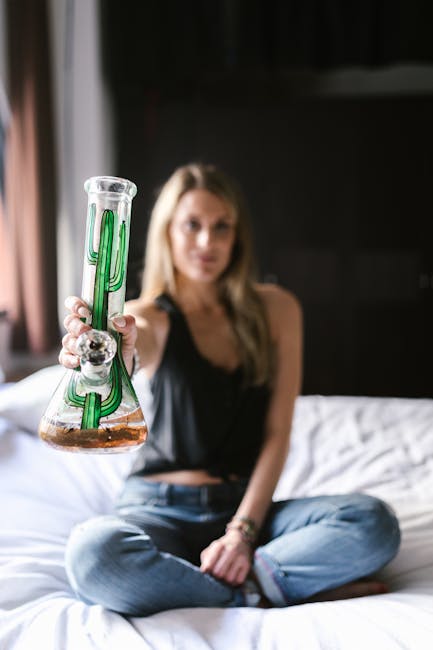Prague, the capital city of the Czech Republic, is known for its rich history, cultural landmarks, and vibrant nightlife. However, in recent years, the city has also gained notoriety for its growing popularity of Brazilian cocaine. This article aims to explore the reasons behind Prague’s bold choice and the implications of this trend.
Brazilian cocaine, also known as “Oxi,” is a type of cocaine that originates from Brazil. It is known for its high purity and potency, making it a popular choice among drug users. The cocaine is typically smuggled into the Czech Republic through various routes, including air and land borders.
Reasons Behind Prague’s Preference
So, why has Prague become a hub for Brazilian cocaine? There are several reasons that contribute to this trend. Firstly, the city’s strategic location makes it an ideal transit point for drug smugglers. Secondly, the demand for high-quality cocaine is high in Prague, driven by the city’s thriving nightlife and party scene. Additionally, the relative ease of smuggling and distributing the drug in the city has made it an attractive option for dealers.
Implications of the Trend
The growing popularity of Brazilian cocaine in Prague has significant implications for the city and its residents. The increased availability of the drug has led to a rise in drug-related crimes, such as theft and violence. Moreover, the health risks associated with cocaine use are a major concern, with many users suffering from addiction, mental health issues, and other health problems.
Law Enforcement Efforts
In response to the growing trend, law enforcement agencies in the Czech Republic have stepped up their efforts to combat the smuggling and distribution of Brazilian cocaine. This includes increased border patrols, raids on suspected drug dens, and cooperation with international authorities to disrupt the supply chain.
- High purity and potency: Brazilian cocaine is known for its high quality, making it a popular choice among drug users.
- Strategic location: Prague’s location makes it an ideal transit point for drug smugglers.
- Thriving nightlife: The city’s party scene drives the demand for high-quality cocaine.
- Health risks: Cocaine use is associated with addiction, mental health issues, and other health problems.
Efforts to Combat the Issue
The Czech government has implemented various measures to combat the spread of Brazilian cocaine in Prague. These efforts include increasing funding for drug treatment programs, enhancing law enforcement capabilities, and launching public awareness campaigns to educate citizens about the dangers of the drug.
Collaboration with International Authorities
In addition to domestic efforts, the Czech government is also working closely with international authorities to disrupt the global supply chain of Brazilian cocaine. This collaboration includes sharing intelligence, coordinating border patrols, and conducting joint operations to dismantle drug trafficking networks.
Impact on Local Communities
The rise of Brazilian cocaine in Prague has had a significant impact on local communities. Many residents have expressed concerns about the increased presence of drug dealers and users in their neighborhoods, citing fears for their safety and the well-being of their children.
Furthermore, the growing demand for the drug has also led to an increase in drug-related crimes, such as theft and burglary, as users seek to fund their habits. This has placed a significant burden on local law enforcement agencies, which are working to combat the issue and restore a sense of security to affected communities.
Support for Addicts
In response to the growing number of addicts, the city of Prague has established a range of support services to help those struggling with cocaine addiction. These services include counseling, rehabilitation programs, and access to medical treatment.
Additionally, several non-governmental organizations (NGOs) are also working to provide support to addicts and their families. These organizations offer a range of services, including outreach programs, support groups, and educational initiatives to raise awareness about the dangers of cocaine addiction.
Recommendations for addressing the issue include:
- Increasing funding for drug treatment programs: To provide adequate support to those struggling with addiction.
- Enhancing law enforcement capabilities: To disrupt the supply chain and combat drug-related crimes.
- Launching public awareness campaigns: To educate citizens about the dangers of Brazilian cocaine and the importance of seeking help.
- Collaborating with international authorities: To share intelligence and coordinate efforts to dismantle global drug trafficking networks.
By working together and adopting a comprehensive approach, it is possible to reduce the spread of Brazilian cocaine in Prague and create a safer, healthier community for all residents.
Consequences of Brazilian Cocaine Use
The use of Brazilian cocaine has severe consequences on the health and wellbeing of individuals. Physical health problems associated with cocaine use include increased heart rate, blood pressure, and risk of heart attack, stroke, and respiratory failure. Psychological effects can include anxiety, paranoia, and psychosis, as well as addiction and dependence.
Social Impact
The social impact of Brazilian cocaine use is also significant. Relationships and families can be damaged or destroyed due to the addictive nature of the drug. Economic problems can arise from the financial burden of supporting a cocaine habit, leading to debt, unemployment, and poverty. Furthermore, community safety is compromised as drug-related crimes increase, creating a sense of fear and insecurity among residents.
It is essential to address the issue of Brazilian cocaine use in Prague through a comprehensive approach that includes prevention, treatment, and law enforcement. By working together, we can reduce the spread of this dangerous drug and create a safer, healthier community for all.
Prevention Efforts
Prevention is key in reducing the demand for Brazilian cocaine. Educational programs and awareness campaigns can help to inform citizens about the dangers of the drug and the importance of seeking help. Community-based initiatives can provide support and resources for individuals and families affected by cocaine use, helping to prevent the spread of the drug and promote a culture of health and wellbeing.
Treatment and Support
For those struggling with cocaine addiction, access to treatment and support is crucial. Rehabilitation programs can provide a safe and supportive environment for individuals to overcome their addiction and rebuild their lives. Counseling and therapy can help individuals to address underlying issues and develop coping strategies, reducing the risk of relapse and promoting long-term recovery.
By providing effective treatment and support, we can help individuals to overcome their addiction and live healthy, productive lives. It is essential to continue working together to address the issue of Brazilian cocaine use in Prague and create a brighter, safer future for all.






I found this article to be very informative and eye-opening. The author does a great job of exploring the reasons behind Prague\
The implications of this trend are alarming, to say the least. I hope that law enforcement efforts will be successful in combating the smuggling and distribution of Brazilian cocaine.
The author raises some very valid points about the health risks associated with cocaine use. It\
Overall, I thought this was a well-researched and well-written article. The author provides a nuanced exploration of a complex issue, and I appreciated the insight into the world of Brazilian cocaine in Prague.
I was surprised to learn about the high purity and potency of Brazilian cocaine. It\
I appreciate how the article highlights the efforts of law enforcement agencies to combat the smuggling and distribution of Brazilian cocaine. It\